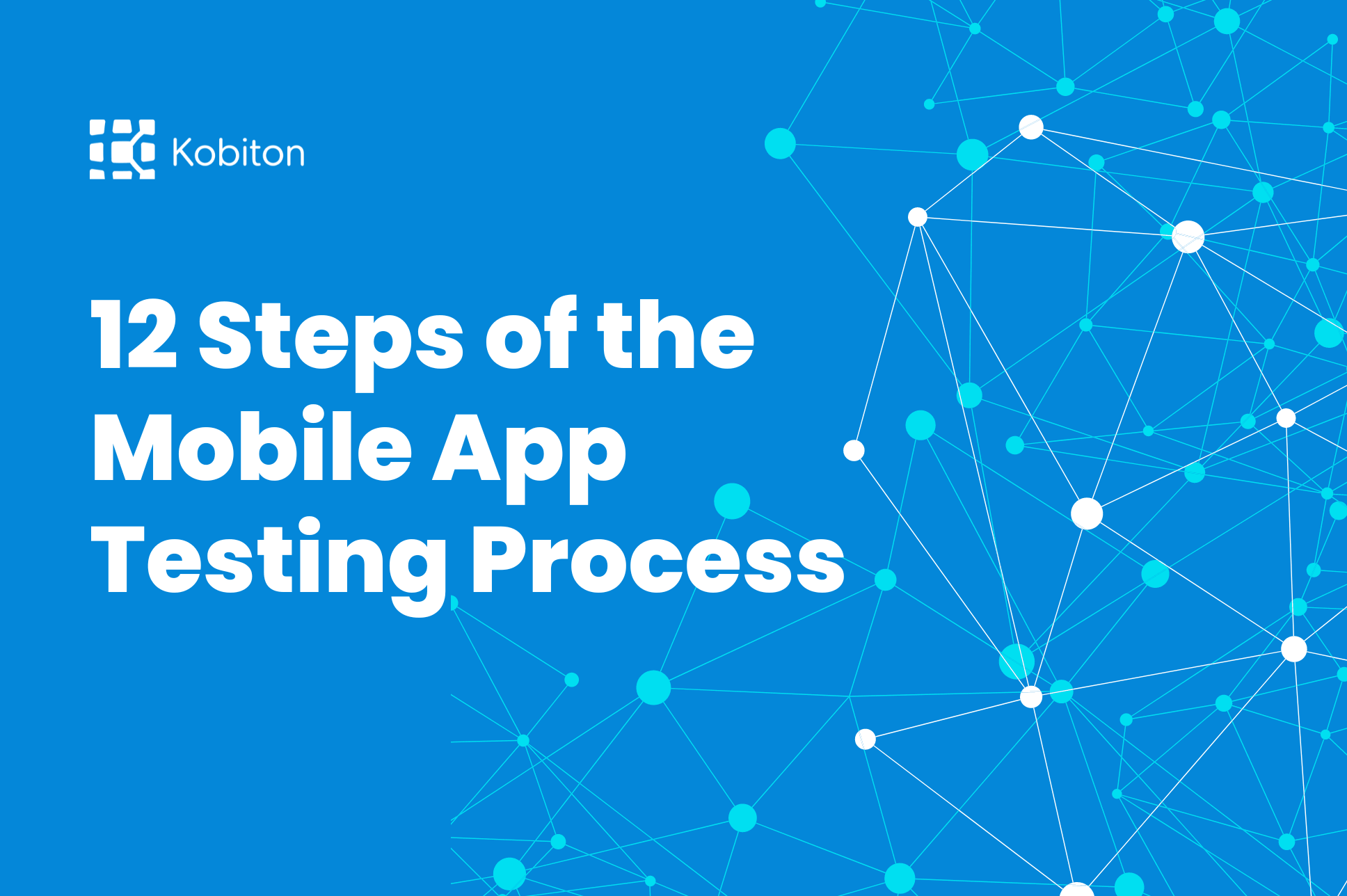
The 12 Steps of the Mobile App Testing Process

Brittney Lawrence
eCommerce app development is a booming industry. According to Forbes, global eCommerce sales are expected to exceed $4 trillion by 2023. This growth is driven by an increase in mobile commerce as more and more consumers shift their shopping habits to their smartphones and tablets.
Given this growing demand for eCommerce apps, it’s no surprise that many businesses are eager to dive into eCommerce mobile app development. But how can you make sure your eCommerce app development process is successful? And what steps should you take before even starting development?
This blog post will provide an essential guide on how to develop eCommerce apps. Here are the six steps on how to build eCommerce apps.
Before you start developing your eCommerce app, it’s essential to conduct market research to assess the viability of your app idea. It should include competitor analysis and customer surveys to understand what potential customers want from an eCommerce app.
Market research will also help you determine your app’s features and functions and how it will integrate with existing eCommerce platforms. Once you clearly understand the market and customer needs, you can begin developing your eCommerce mobile app.
How to undertake Market research:
The platform you use for your eCommerce app development project will be critical in determining its success. It needs to handle the complexity and volume of transactions that an eCommerce app is expected to process.
The best eCommerce platforms offer seamless integration between online stores, payment gateways, analytics tools, marketing tools, and more. You may need to consult an experienced developer or specialized consultant who can guide you in choosing.
Once you have chosen a platform, it is essential to ensure that it is up-to-date with the latest features and technologies because eCommerce mobile app development continues to evolve rapidly.
What to look for in an eCommerce App Development platform:
Choosing the right eCommerce platform for your eCommerce app development project is crucial for its success.
Identifying your eCommerce goals will help guide your app’s design and development. Your goals could range from increasing reach to expanding customer engagement. Consider your objectives early in the eCommerce app development process. They will inform the design and usability of your eCommerce app.
After all, you want to ensure that your eCommerce mobile app helps achieve these objectives. Also, consider how eCommerce app development fits into your broader eCommerce strategy.
The UI design is integral to your app development, making the eCommerce store more user-friendly and attractive to customers. It would help if you designed the eCommerce UI with customer experience in mind.
It must provide easy navigation, allow customers to quickly find what they are looking for, and deliver a seamless checkout experience. In addition to providing an intuitive shopping experience, eCommerce apps should also include features like product recommendations, customer reviews, and secure payment options.
The UI design can make or break your eCommerce app’s success as it determines how easy or difficult it is for customers to use.
After designing the UI, it’s time to develop the eCommerce features that make up your eCommerce app. These features give your eCommerce app its functionality and purpose. Depending on what you’re trying to achieve, eCommerce features can include:
When eCommerce features are complete, you’ll need to test them thoroughly. This involves ensuring that they work in all browsers and mobile devices and checking for security vulnerabilities, which is the following item to consider when developing an eCommerce app.
Once the eCommerce features are developed, testing them thoroughly before launching them is essential. This is where Kobiton App Testing Services can come in handy. They provide comprehensive testing services for eCommerce apps, from functional and performance tests to usability and compatibility tests.
How testing helps you:
This way, eCommerce merchants can rest assured that their eCommerce apps are up to scratch before launching them on the market. Kobiton’s eCommerce and Retail App Testing Services also provide detailed crash logs and bug reports, so eCommerce app developers can ensure that any issues are addressed quickly and efficiently.
Kobiton App Testing Services provide comprehensive testing solutions and features like automated test scripting and actual device cloud access, making testing even more efficient and effective. So if you’re looking to develop an eCommerce app with all the bells and whistles, Kobiton App Testing Services can help ensure everything works perfectly before launch!
Once the app has been tested and verified, it’s time to launch it on the app stores.
After thorough testing, you can launch your eCommerce app on the market and start driving sales. Make sure you plan to continue app development and maintenance, as customers’ expectations change over time. This will help ensure your eCommerce mobile app stays up-to-date and relevant to the market.
As you develop your apps, keeping an eye on competitors in the eCommerce space is essential. Analyze what they are doing right and wrong, and adjust your strategy accordingly. That way, you can stay ahead of the competition and make sure that your app stands out from the rest!
With eCommerce mobile app development becoming increasingly popular, merchants now have the opportunity to reach new customers and grow their businesses. An effective eCommerce mobile app is essential for success in this digital age. However, it’s crucial to ensure that it is adequately developed and tested thoroughly before launch. By following best practices in eCommerce app development and taking advantage of technologies like Kobiton App Testing Services, eCommerce merchants can rest assured that their apps are ready before launching them on the market.